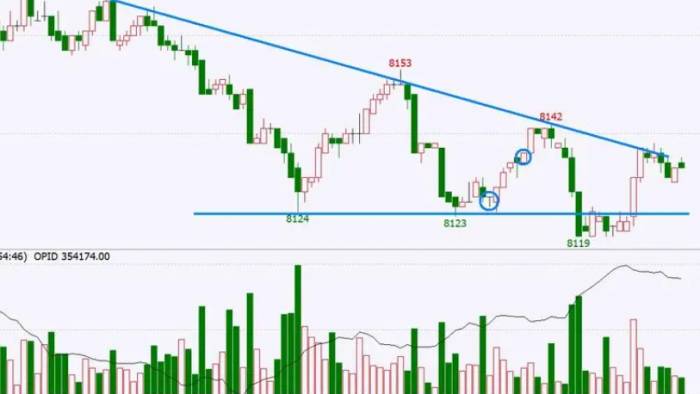The real trading master to be introduced today is Japan's most outstanding individual investor. He is a mysterious figure, known only by the code name "cis" and his Twitter account @cissan_9984, with his true identity remaining unknown to the public. He fears the risk of robbery and extortion, yet he has made his actual trading public.
Cis has been interviewed anonymously by Bloomberg, where we learned that he is 42 years old this year and a father of three children. He used to be a gaming master, and "cis" is the alias he used in the gaming world.
At the age of 25, he began the life of trading at home in his pajamas.
In 2000, when cis was 21 years old, he started trading stocks; at the age of 25, he resigned and began to trade stocks full-time. Since then, he has been living the life of trading at home in his pajamas.
His initial trading capital was 3 million yen (equivalent to about 230,000 yuan), and by the beginning of 2018, his assets had reached as high as 23 billion yen (equivalent to about 1.38 billion yuan).
Cis once live-streamed two major transactions on Twitter, allowing his 40,000 followers to witness the process of him making money.
On a "Black Monday" in 2015, when the global stock market plummeted and many investors fell into panic, cis invested a large amount of money to start short selling and calculated the low point time on Twitter. As he expected, he made a huge profit from this transaction, with a profit of up to 34 million US dollars.
In August of the same year, cis began to short sell the Nikkei 225 stock index futures, and he was very confident that the index would fall. Not long after, the Nikkei index did fall, and his paper profit reached 13 million US dollars. However, he did not take the profit and settle, but firmly believed that the US stock market crash would continue to affect the market, and instead continued to increase his position. When he settled, the profit doubled.Afterwards, he felt that the market had hit bottom, so he turned around to go long. In just a few days, he made several hundred million yen.
After closing this deal, CIS also posted on Twitter to tell the onlookers: "I ended this epic rebound trade."
In an interview with Bloomberg Markets, CIS presented his tax returns and trading bills. In one of the trading bills, it can be seen that he traded a total of 14 billion US dollars in Japanese stocks in 2013, which is about 0.5% of the total value of retail stock transactions on the Tokyo Stock Exchange that year.
According to the settlement statement of the securities company SBI Holdings, CIS's liquid assets are generally maintained around 4.4-4.8 billion yen. In the interview, he said that he has made more than 16 billion yen from scratch in the past ten years by trading stocks. At the busiest time, he would trade 70 billion yen of stocks in a day.
With the public disclosure of CIS's actual trading, he has also become a god-level figure admired by Japanese day traders.
CIS's trading logic: go with the trend, buy high and sell low.
CIS said in the interview that he never pays attention to the fundamentals in his trading, but only "buys what people are buying and sells what people are selling", that is, he adopts trend-following trading. CIS believes that whether it is stock trading or futures trading, one thing that can be 100% sure is that bottom fishing is always difficult, and only trend-following trading can survive for a long time.
CIS will be empty when the market fluctuates very little, choosing to pick up the fun of the game again. When the market has a large fluctuation, many traders will choose to cash in profits in time and enjoy the profits; but he will do the opposite, he will continue to increase his positions to go long or short; he believes that if the position is not enough, then no matter how big the market, it is meaningless.When it comes to trading logic, the advice he gives to novice and seasoned traders in the stock market is "stocks that have been rising continuously will continue to rise, and those that have been falling continuously will continue to fall." CIS believes that when prices are in an upward trend, the approach of betting on the market to continue rising is called "trend-following trading"; on the contrary, when the market is falling, the approach of believing that the market will rise against the trend is called "contrarian trading." Trend-following trading means that there are more people buying stocks and investing capital than those selling stocks and withdrawing capital; and the market rises because of buying and falls because of selling. Therefore, following the rhythm of the market to operate increases the chances of winning.
CIS initially did not understand this principle and only realized after losing 10 million yen that one cannot always prioritize their own ideas and ignore the current market facts. Since then, he has started to follow the principle of buying the rise and not the fall - if the stock falls after buying, sell it; buy with the trend, and sell as soon as the trend changes. If I think it will fall in an hour, I will sell it immediately; it has nothing to do with the purchase price and whether I am at a loss or profit now.
Stop-loss is not a skill, but a mental preparation.
The inability to stop losses in a timely manner is a problem for many trading novices. Novices always wait for the price to rebound to the purchase position before starting to stop losses. CIS believes that this is because traders cannot face the fact of losses, and being trapped is a typical pattern of losing money.
CIS has a lot of experience in stop-loss, and he thinks that although his stop-loss is not comparable to some advanced algorithms, it is quite early and fast among ordinary traders. He believes that the emotion of "not wanting to lose money, not willing to admit to losing money" will lead to trading failure.
So, timely stop-loss is very important. It is more accurate to say that stop-loss is a mental preparation than a skill. Although CIS has also had many failed trades due to stopping losses too early, he always believes that the concept of being ready to stop losses at any time is correct.
Learn to trade from the market and your own trading results.
Whether it is the stock market, currency pairs, or futures trading, basically, the participants are all losers because they have to pay transaction fees and taxes. And among them, the one who loses the most is the person who has a deviation in their own ability and self-awareness.CIS also had times when he lost money, and he too was troubled by the issue of "not making much money lately." However, he never became dejected, nor did he ever consider the question of "whether he could persist." He only cared about how the market would move next and what the prices would be like tomorrow.
Regarding how to learn trading, CIS believes that one should continuously learn from the market and from one's own trading results, even if it's just a small improvement every day. The knowledge mentioned in books is all in the past tense and is not helpful for the future.
When one's trading strategy is repeatedly negated by reality, or when the bought stock falls and one has to stop loss and exit, but then it rises again, should one buy it again? In other words, when stopping the loss, one has already negated oneself once, and if one buys again, one has to negate oneself again. CIS said that he doesn't care about this situation at all, as the state of the market is more important than one's own state.
CIS started making money half a year after trading, but his understanding of the market has evolved with the accumulation of experience. He believes that the current market has become more complex, so he respects the market more than before, and therefore, he escapes faster.





























